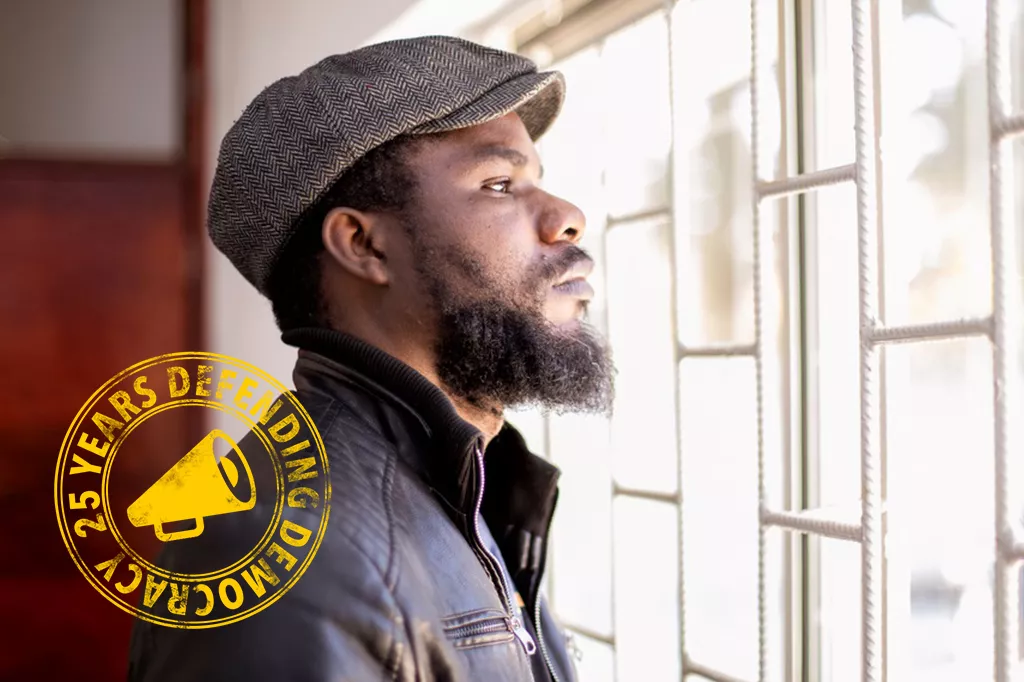Changemaker: Artist PILATO using music for social justice

In the increasingly hostile civic environment in Zambia, few resilient voices are standing against all odds to safeguard basic freedoms of expressions and defend human rights. One such person is PILATO, a changemaker from Zambia who uses music to combat social injustices. Pilato is a stakeholder in a Forum Syd supported intervention through Action Aid Sweden and implemented by Action Aid Zambia.
Why the name PILATO?
Pilato: My name is Pilato. It’s an acronym meaning People in Lyrical Arena Taking Over. I chose the name Pilato as a product of conviction. It is a statement that emphasizes the need for creatives to take responsibility both in social and political affairs.
How is the civic space in Zambia?
Pilato: As an artist, I see things from a very different perspective. People often say that the civic space is shrinking but for me, that space has never existed. It is difficult to know that you are a slave if you have never enjoyed freedom.
Pilato: For civil society organizations that have been in existence for a long time, they have a reference point when they used to operate freely and effectively without fear of interference by the state. As for me, I did not experience that space. When I was doing sexist music about love, women and other non-issues I felt like I was free and with a lot of support. However, when I started singing about issues affecting my people like corruption and other social injustices, I discovered that space never existed for me.
What happens when you sing about corruption and other social injustices?
Pilato: The last time I did a song called Koswe Mumpoto meaning "Rat in the pot," there were so many threats on my life that I had to go into exile for six months. When I came back thinking the dust has settled, I was detained by the police for more than a week. In 2015, I was also arrested and locked up after I had done a song called Lungu Anabwela meaning ‘Lungu is drunk.’
What puzzles me is that issues like bad governance, corruption, abuse of office are in the public domain and I do not create this information. But when I sing about them, I end up being persecuted and charged with incitement, defamation or disturbing the peace.
How effective has been your musical activism?
Pilato: Music has so much power that if carefully shared a lot of people can experience and feel that power. Music is also easily accessed by both the poor and the rich. What I do is take that power and decorate it with my ideas. If I am going to speak about women, then I can as well speak about the government and its obligations to the people.
I am hoping that if someone is going to make a decision about which kind of women to date basing on my music, then they should also be best informed on which kind of leaders to vote for.
Not many musicians are social activists, why have you chosen this path?
Pilato: The path that I have taken has well been informed by my upbringing experience. My parents died when I was about 17 years old so the person, I am today, is a product of the efforts of a humble community that raised me. The conviction to do this type of music is grounded on the fact that I want to take advantage of whatever power and platforms I now have, to advocate for better services and a better life for the poor. I do not think that I need political power for me to say that people need clean water. I do not think I need special powers for me to say hospitals and clinics should be well equipped with medicine.
What is the kind of Zambia that you are fighting for?
Pilato: First and foremost, my perfect Zambia must exist within a perfect Africa. There’s no way Zambia would be perfect in an imperfect Africa. That being said, my perfect Zambia and Africa are where development is centred on people. It is where people are empowered, loved and are given proper education. This way they can create their opportunities and will be able to excel. I do not think that there can be any form of development without the development of the people. We can build roads and whatever nonsense we choose to build but if we refuse to develop our people then all these things will just be meaningless.

Change begins with people. People who raise their voices, who work together and who organise to demand democracy, equality, accountability and human rights. We want to tell you about the people and organisations that are fighting for a better life, for everyone. With the campaign Changemakers we give you an insight into how Forum Syd works to create change through our support to civil society and human rights defenders around the world.
Other recent articles

The power of people powered Public-Private Partnerships
Public–Private Partnerships (PPPs) are often discussed in terms of roads, power plants, housing, and other large infrastructure projects. But as discussed on the People’s Partnership Podcast, PPPs are...

ForumCiv’s social media accounts labelled as “extremist materials” in Belarus
Important message to our Belarusian followers. Any interaction with our content can now lead to legal consequences in Belarus. Please read the information below and take the necessary precautions for...

ForumCiv enters new strategic partnership
ForumCiv is proud to announce a new three-year strategic partnership with Sida, totalling SEK 137 million.